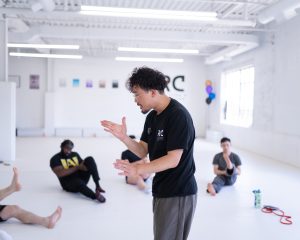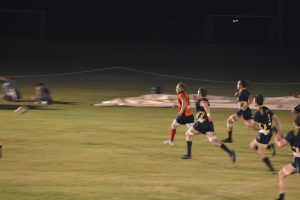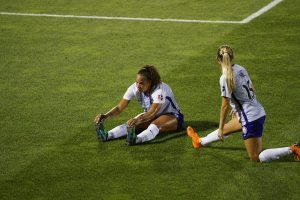If you’ve been injured, you know the heartbreak of not being able to play during an important event – and there’s no getting around it – it sucks.
A physiotherapist can be a strong pillar in an athlete’s injury recovery. Physiotherapy has a role in:
- support systems
- providing information and answering questions
- having an open line of communication
- reassurance
- creating a rehab plan with small goals, activity modifications and goal-oriented treatment
- being an advocate and leader in creating the team around the injured athlete
In this interview, I chat with Chantal from Pyramid Psychology about how physiotherapy can support a teen athlete in the unfortunate circumstances around an injury.
Here is part of the Q&A that Chantal and I cover in our video interview. You can watch the entire interview below.
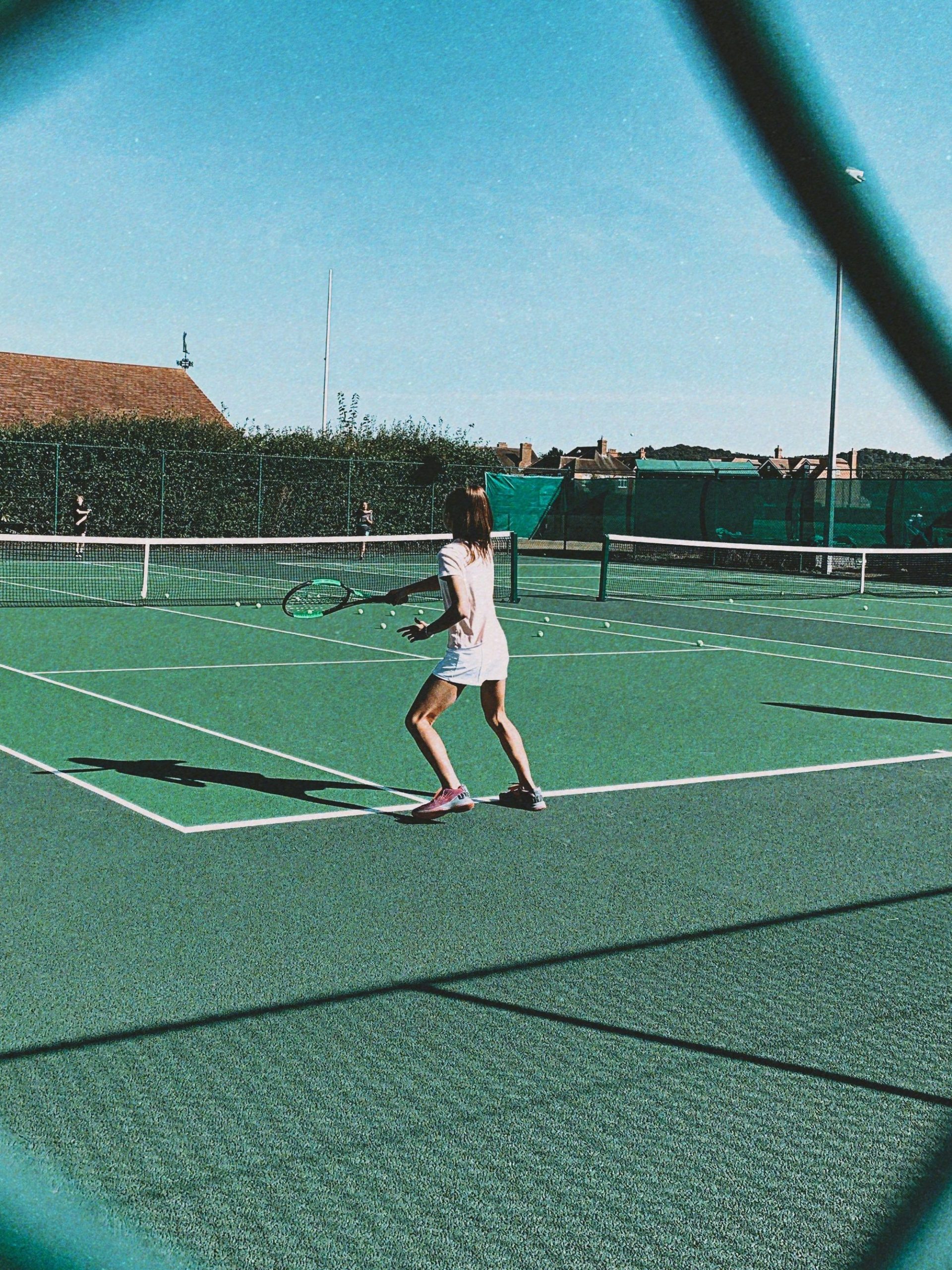
Chantal: How do you see your work being important or or helpful in terms of a an athlete who becomes injured?
Hannah: Physios can definitely provide some information that either the parent might not have awareness of. If they saw their GP,a family doctor or even a surgeon, often there wasn’t enough time in the session to ask enough questions, or they didn’t know what to ask at the time and so there are questions that were left unanswered.
So a physio, like myself, can provide answers and explanations in our longer one-to-one sessions.
Being able to explain and actually understand what their injury means for their body and what it then means for recovery and how that then ties into return to sport. So just answering those questions is huge, and that can be a huge part of the session.
This can help the teen’s mindset by having more knowledge about their injury, the next steps they can take, and the healing timeframe. I usually take athlete’s through the 4 Rehab Phases so they can see the plan of action. This takes away some uncertainty to the circumstances and gives the athlete reassurance and some confidence moving forwards. I find this also helps give the parents tools they can use at home when their kid is struggling with the injury and provide some support and reassurance from the rehab phases and injury explanation.
Chantal: What can you help athletes with in the first stages of recovery for their mental health and processing the injury?
Hannah: As a physio, I can give activity modifications and guidance. I can talk to the coach and see how this athlete can still participate and be part of the team even though they can’t do the contact drills or they can’t run with the team, for example.
I feel like this aspect drops off, and the athlete is left without a plan, because there isn’t someone who steps up to do that. So it’s having that direct contact with the coach and not putting it on the teen or even the parent’s shoulders. I can take that initiative and be that connecting dot between how the athlete can participate at a reduced level, and giving them other exercises.
This helps create a bulletproof mindset by teaching the young athlete that there are always little things they can do and keeps them motivated. They also can still feel as though they are part of the team and not miss out on the social or team aspect of their sport.
It gives them back a bit of control over the situation and, at the same time, keeps them physically moving. The mindset shift from performance to rehab is an important one to learn, and on the physio side of things, there are aspects like the cross-over effect (training the un-affected side to get gains on the affected side), and minimizing detraining.
Celebrating Small Wins
Hannah: I think that this is huge for athletes because most of them are goal driven or goal oriented.
So if you can provide those little success and those little wins for an athlete and for an injured athlete, it just gives them something to basically be like, “Okay, I couldn’t do that last week, but I can do that now.” And it’s just little steps like that which can lead them towards feeling better about their recovery.
For their mindset, the athlete starts to learn how to generate internal motivation and see the positives. This is so important for their mindset since a lot of rehab work is done alone. As a young athlete, the parents do play a big role and can also learn this valuable lesson. Using the small wins to help motivate their kid through the process is key.
Creating a team network for the injured athlete
Hannah: Depending on what that athlete had before, either the physio becomes a pretty strong pillar to drive that recovery process, or they actually start creating that network around the athlete. This can include a psychologist, a nutritionist, the surgeon – whatever the athlete needs to support their recovery and injury rehab.
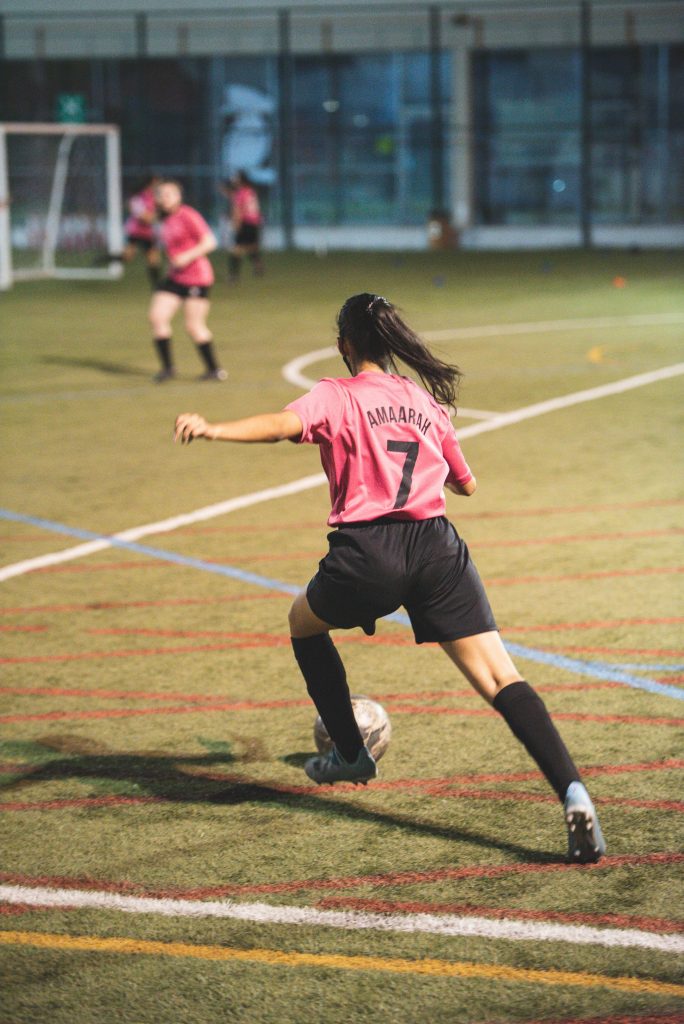
By doing this, I can start creating a communication network. So because I’ve now answered these questions, I’m part of the team, I’m talking to their coach, I should also just make sure that they feel comfortable then talking to me, whether that’s or just making sure that I initiate those follow-up appointments and taking the lead on that, essentially.
A bulletproof mindset incorporates an understanding that it is ok to ask for help. Having this team around the injured athlete provides support and an environment where it’s ok to be struggling.
Learning about relative rest – it’s not all or nothing
Hannah: There’s so much research and so much supporting the opposite of full rest after an injury. It’s ‘relative rest’ is kind of what we call it. So it’s not completely stopping doing things – it’s how can we just modify things. It’s always about modification.
This is the mindset shift again from performance to rehabilitation and not feeling hopeless in the situation. The athlete can start to learn about how injuries impact the body, and learning about periods of rest, periods of intensity and periods of recovery. Our bodies were made to move, and we just need to keep getting in that direction. As slow as it might be or as annoying as that might feel for the athlete, it’s taking those little steps.
Watch the full interview video:
If you’ve just injured yourself or you are the parent of a young teen with an injury and have questions regarding the next steps, you can fill out this Google Form to see how I can help as a physiotherapist.
More about Chantal and Pyramid Psychology
Chantal is a Registered Psychologist in SE Calgary helping teen girls (and their parents) to build bulletproof mindsets. She has been working with diverse children, teens, and families for over 14 years and loves watching them thrive. Reach out to her through instagram or email.
